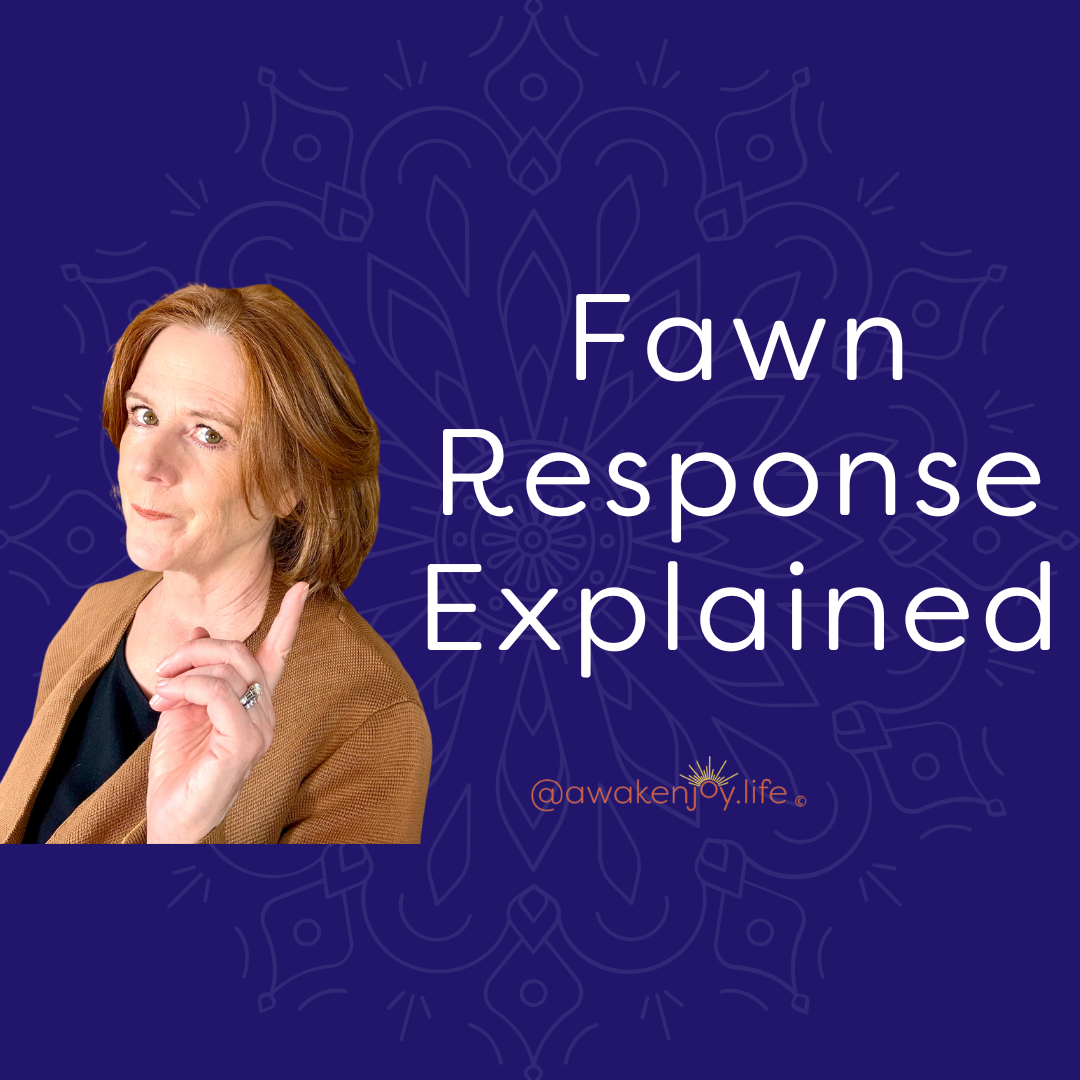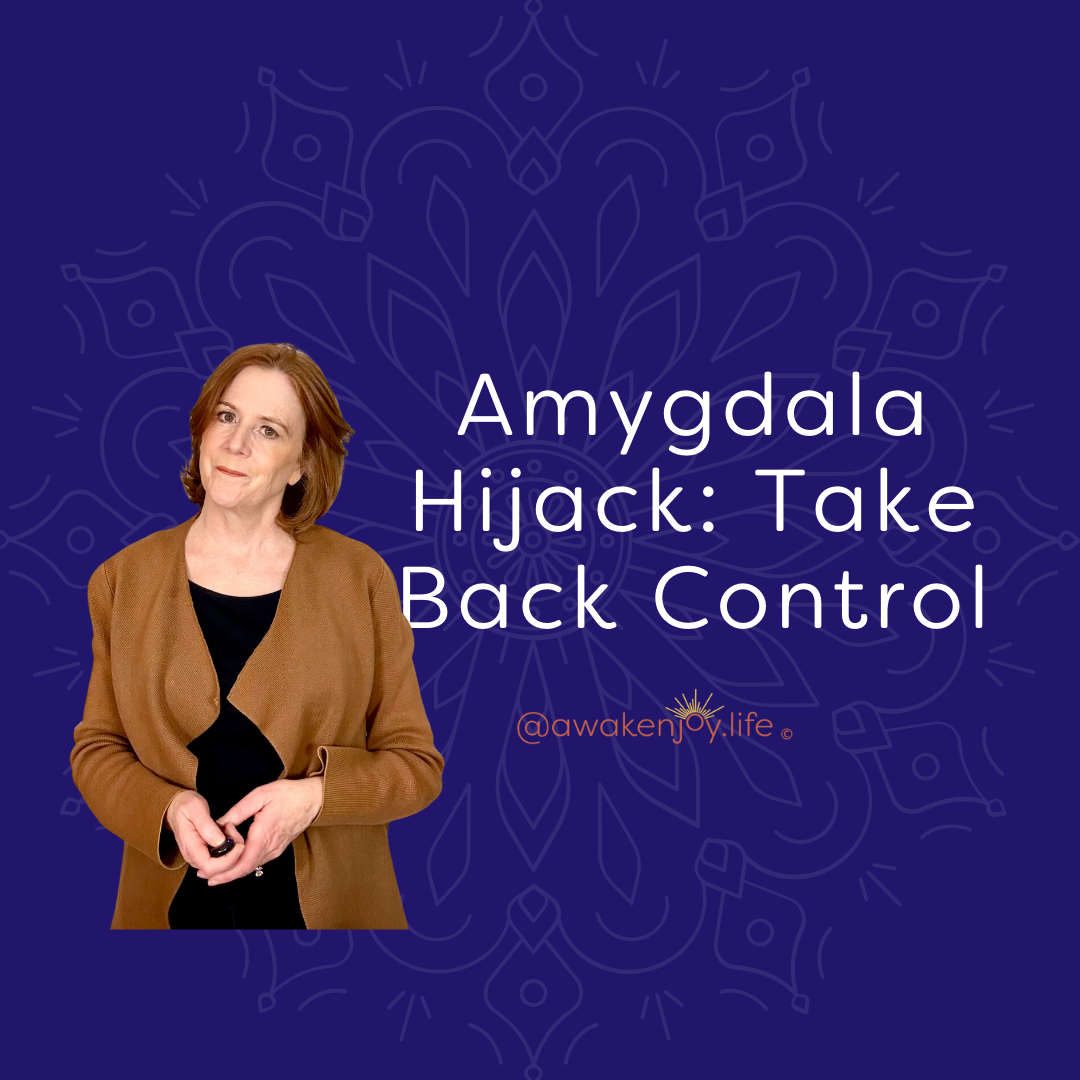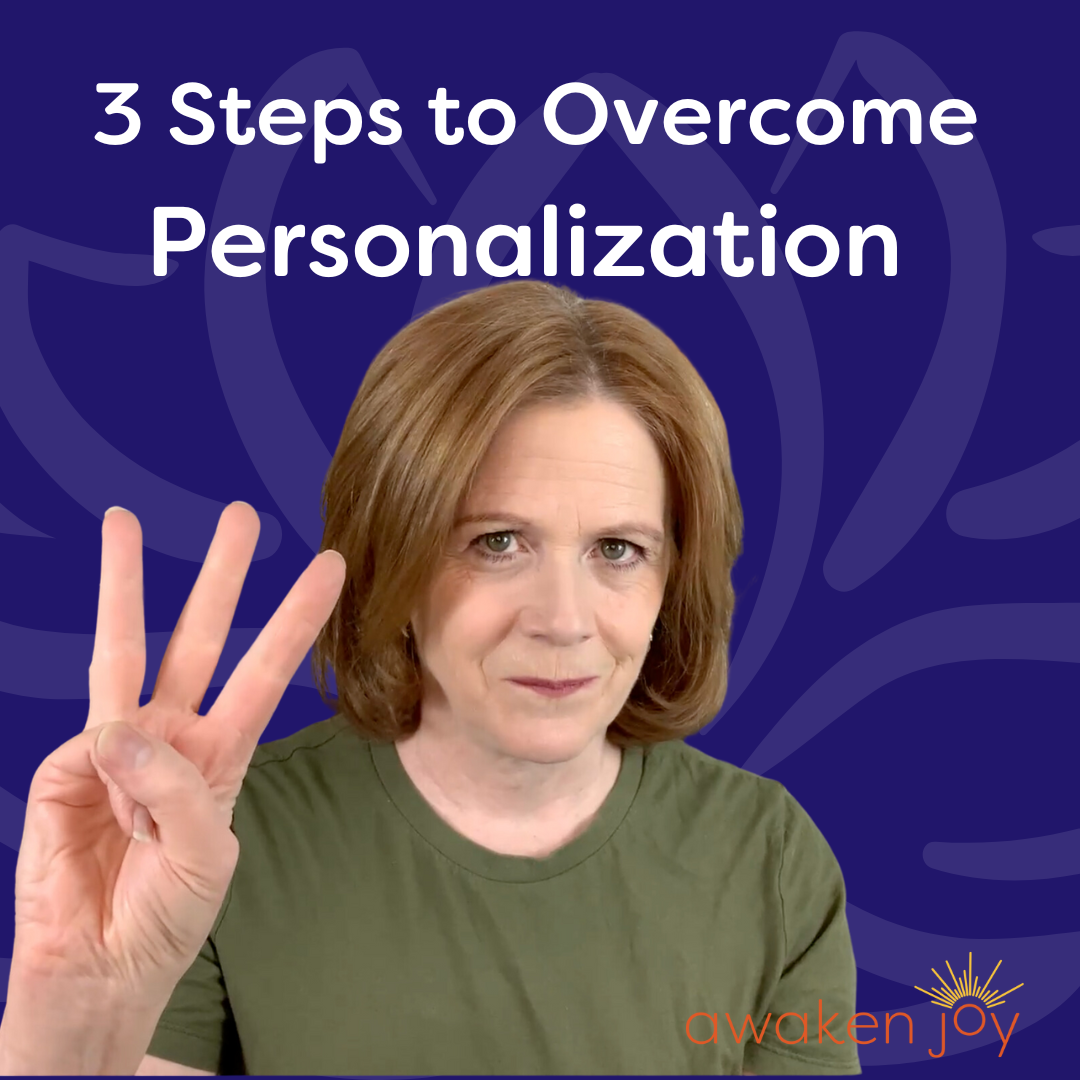By Barbara Heffernan
•
March 24, 2025
Understanding the Fawn Response The Fawn response is a behavior developed in childhood, often connected to complex trauma. It could even be little "t" traumas on an ongoing basis, where as a child, you learned to subjugate yourself to the caregiver in order to stay in relationship and survive. This becomes a deeply ingrained survival behavior which can become habitual. As you grow up, it gets applied to all situations. This blog will go through nine components required for healing. - The first three focus on internal work - The next three are more practical, action-oriented techniques - The last three address deeper psychological work Internal Work (Components 1-3) # 1. Recognize that fawning developed because it was necessary at the time Understand that fawning was a survival strategy, and it might have been the very best choice available to you. It may also have been, in many ways, the only choice. Even today as adults, there are situations where choosing a fawning-type behavior might actually be the best choice. This is important to understand because we don't want to eliminate this response entirely—we want to get to the point where it's not an automatic go-to reaction. Instead, we want to reach a place where you can consciously think, "I'm choosing to do this right now." Acknowledging that this developed as a survival strategy helps prepare you for the next two components. [ For more information on what the fawn response is and why it developed, read this blog] # 2. Begin to acknowledge and validate your own feelings If you grew up in an environment where you learned to fawn, my guess is that not only were your caregivers not paying attention to your feelings, but you also had to subjugate your own feelings to the point where you weren't aware of what you were feeling. As an adult, it's necessary to begin recognizing and identifying your emotions: "I'm feeling angry" or "sad" or "frustrated" or "irritated." Begin to acknowledge and even verbalize what you're feeling. The simple act of labeling your emotion calms down your fight-flight-freeze response and increases activity in the areas of the brain that help you solve problems. There is research that shows this happening via fMRIs! # 3. Practice self-compassion Understanding why this behavior developed can help you practice self-compassion. Changing these behaviors is hard and takes time. If you find yourself automatically fawning and later yelling at yourself, try not to do that—you're basically re-traumatizing yourself for a behavior you learned for survival. Instead, try noting it with self-compassion: "Interesting, I fell into that pattern again." And then connect this to the next step by adding, "I fell into that pattern again because of this situation." Observe with compassion rather than judgment. Practical Tools (Components 4-6) # 4. Identify situations that trigger fawning behavior Notice which situations trigger your fawning behavior. As you review these situations, see if there are patterns similar to those you experienced as a child. They may reflect situations that were emotionally or physically dangerous, or that created a rift between you and your caregivers. Identifying these situations helps you understand what patterns became embedded in your emotional brain. As you observe these patterns, bring in self-compassion and that observer mindset. This approach is much more productive than criticizing yourself. As you identify these patterns, you can connect them to current situations: "This situation at work with a difficult authority figure is recreating this childhood pattern for me." You are bringing in your frontal lobe to analyze the emotional reaction, which helps you realize, "That was threatening to my very existence when I was a child, but it is not threatening to my existence right now." This recognition is crucial because automatic fawning behaviors come from a need to survive immediate danger. The uncertainty of longer-term consequences (like losing a job) might be problematic, but it's not an immediate survival threat. Differentiating between then and now helps calm your fawn response. # 5. Keep a journal to track people-pleasing behaviors Keep a journal for 30 days. Journal on this question: "Did I say or do something today to please someone else that was at my own expense?" As you review the events of each day, you might realize, "I didn't do it this situation, but I did do it in those five situations." Again, maintain self-compassion with no judgment—just observe and be aware this will take time. This question gets at the heart of the issue: What did you do today that ignored your own values or needs in order to stay in relationship with someone else, avoid criticism, or prevent rejection? Verbalizing this through an audio journal or writing it down utilizes different parts of your brain that help you comprehensively understand what's happening. # 6. Practice emotional regulation tools daily Implement diaphragmatic breathing, grounding exercises, or any techniques that calm your physiology. Practice these regularly, not just in the middle of triggering events. You can weave these practices throughout your day. Set an alarm for three different times during the day, and when it goes off, simply take three deep diaphragmatic breaths. No one needs to know you're doing it—you can do it anywhere, and it's free. While it might not feel immediately helpful, you're stimulating a different part of your nervous system that helps you realize, "In this situation, it would not be life-threatening if the relationship were severed. I'm not in a situation where my immediate survival is at stake." When you feel safe enough, your normal breathing pattern will naturally be diaphragmatic. It's all a feedback loop—a body-based technique that communicates to the rest of your brain. The fawn response is differentiated from the fight-flight-freeze response. Sometimes they're grouped together, but I think it's more useful to separate them (I'll cover this topic in the future if you're interested—let me know in the comments). The fawn response uses different parts of the nervous system and brain because it's largely about staying in connection with others. That said, knowing whether your underlying response is fight, flight, or freeze beneath the fawn behavior can be helpful. People who fawn typically have either a flight response (wanting to run away) or a freeze response. Fighters rarely develop the fawn response. I recently created videos and blogs about calming the fight-flight-freeze response that might be useful for you. Deeper Work (Components 7-9) # 7. Recognize your negative core beliefs Identify what beliefs developed when you were young that led you to fawn, and what beliefs developed as a result of fawning. A common belief for people who fawn is "my needs don't matter," or even " I don't matter." Other common beliefs include "I'm not good enough," or "I'm powerless." A general feeling of being in danger is also common. Identifying these negative core beliefs and beginning to use tools to rewire them is extremely helpful. [I have a free PDF that helps you identify these beliefs and learn tools to rewire them. You can find it by clicking here ]. # 8. Learn to recognize and separate from limiting thoughts Notice when your behavior is driven by your negative core beliefs, whether you're fawning or not. You might operate from these beliefs almost all the time, even when not actively people-pleasing. Begin to separate yourself from these thoughts. Not all of our thoughts are true. Not all of our beliefs are true. We can "diffuse" from our thoughts by using our observer mind: "Interesting, I'm thinking that again, but I know it isn't necessarily true." A helpful technique is to "practice as if." If you feel like your needs don't matter, pretend that they do matter. Ask yourself, "What would I do right now if my needs mattered?" You can practice this approach in small ways. Your behavior, even if it is coming from a place of pretense, will actually begin to rewire these beliefs. # 9. Establish healthy boundaries I've placed this component last because establishing healthy boundaries isn't simply about saying "no." (Sometimes saying no is a healthy boundary, but sometimes it's not—and boundaries encompass much more than that). Healthy boundaries require a deep understanding of yourself and your values, and an understanding of where you end and others begin. To truly understand healthy boundaries requires deep inner work. The other components we've discussed, particularly emotional regulation, are prerequisites for establishing boundaries. Until you develop a certain level of emotional regulation, it's nearly impossible to implement healthy boundaries. When your amygdala is firing with the fight-flight-freeze response, your response is automatic and happening too quickly for your rational brain to intervene. Your rational mind might know "I should be saying no right now" or "I should leave this conversation," but the panic response has already set in, and your brain is focused solely on keeping the relationship intact and staying safe by avoiding conflict. This is why healthy boundaries aren't just about learning more information. You've probably read extensively about boundaries and have cognitive awareness of what healthy boundaries might look like. Then you get frustrated when you can't implement them because no one talks about the fact that boundary-setting starts with emotional regulation. Healthy boundaries also require healing negative core beliefs and knowing (even if you don't yet feel it ) that you can be safe without maintaining a toxic relationship, you can be safe even when there's conflict. A Structured Approach to Healing In my boundary program , I've designed an approach which walks you through the CORE components of healing and establishing helthy boundaries. The program helps you: develop the emotional regulation you need to begin to set boundaries identify and heal the negative core beliefs that are driving unhealthy boundaries learn assertive communication (as opposed to passive or aggressive) understand how to set boundaries and consequences and begin to do so! (For more info on the boundary program, click here) Learning assertive communication is essential because people with fawn patterns often use passive communication. Assertive communication represents the middle ground between passive and aggressive communication. It embodies the principle "I'm okay, you're okay." Many people who fawn misinterpret assertive communication as aggressive, and since they don't want to be like their aggressive abuser, they default to passive communication. But there is a healthy middle ground. As always, I'd love to hear your thoughts and questions—please comment below. I truly hope this is helpful, and I'll see you next week.












